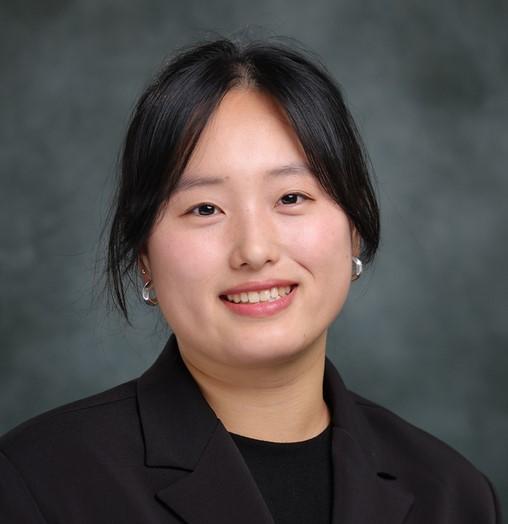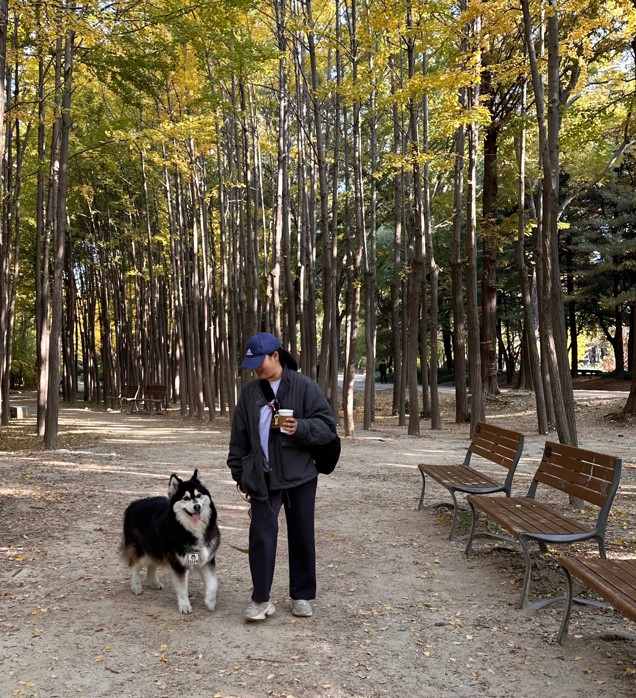
Minji Jang, PhD, began her undergraduate studies wanting to be a teacher, but became fascinated by the underlying mechanisms behind emotions, especially during adolescence. After completing her doctorate, Jang joined the lab of Yong Chen, PhD, where she is studying the neural circuits behind orofacial pain and chronic itching.
For this week’s Spotlight interview, Jang talks to us about her family’s connection to orofacial pain that brings a sense of urgency to her work. She also talks about loving the learning and personal growth that comes with research, and shares her loves of musicals, art galleries, and time with dogs when she’s not at work.
What are your current responsibilities within the Neurology Department? What does a typical day for you look like?
As a postdoc associate at Chen Lab, my typical workday follows my experimental plan. For the past three months, I've spent most of my time understanding and adapting to new topics, new experimental models, and new experimental methods to perform them without problems, supporting my co-worker’s experiments, and conducting my projects. I'm continuing to practice new experimental methods for my project and at the same time doing other experiments.
What research projects are you involved with now? How will they help us better understand or treat headaches or facial pain?
I’m focusing on two different projects understanding pain and itch mechanisms at the Chen Lab. I am working on a newly identified neural circuit (direct synaptic connection of trigeminal ganglion sensory to neurons-parabrachial nucleus neurons related to TRP ion channels) in orofacial affective pain and determined skin cells-sensory neurons crosstalk in chronic disease-associated itch. These studies can be supported to the detailed treatment by identifying the role of neural connections to orofacial pain and studying changes in the behavioral patterns of pain caused by these nerve changes.
How and when did you first get interested in neurology? How did you choose to specialize in headache and facial pain (or another aspect of neuroscience) in particular?
I studied to become a middle and high school teacher when I was an undergraduate, and this work gave me experience teaching students about experiments and science. During this time, I became interested in emotions during adolescence. When I was a PhD Student, I studied the variables that affect emotions in those ages and what areas of the central nerve are related to them. After that, I came to the Chen’s lab in Duke because I wanted to contribute to cranial facial disease treatment.
Before coming to the Chen lab, I had studied a different topic from the present that focuses on pain because it identifies the central neural mechanisms for emotions in adolescent rodents.
However, when conducting an interview with my PI, he told me my topic would be to identify the role of the trigeminal ganglia in orofacial pain, so I decided to study that instead. My eldest aunt had facial pain for nearly 20 years due to trigeminal ganglion problems. She's been under constant medication and surgery, but she hasn't seen much improvement every moment, and she's still in pain. So, this disease has been very familiar to me since I was young, and I wanted to do research that could contribute to the treatment of this disease.
What was the focus of your doctoral studies? What were the main findings of your doctorate?
As a PhD candidate, I conducted a study to identify environmental, hormonal, and drug variables that affect emotional behavior, such as fear memory and anxiety in adolescence, and identify the changing central circuit accordingly. I gained extensive experience in social buffering through animal models, behavioral tests, immunohistology, stereotaxic surgery, and electrophysiology.
I published a study on the sex difference effects of fear extinction and anxiety using a dexmedetomidine and factors on nicotine replacement treatment. I presented evidence for the effect of oxytocin on increasing anxiety. Furthermore, I identified the role of oxytocin receptors in the medial prefrontal cortex(mPFC) and mPFC in acute social buffering during fear acquisition using immunohistology and stereotaxic surgery for fear response during adolescent periods.
What career plans do you have for after you complete your postdoctoral studies? If you could have any job in the world, what would it be?
I don't know yet, but I think I want to continue to be a researcher. People used to ask me why I was choosing a difficult path because they often were unfamiliar with what a researcher’s job was actually like. I think it's enough to contribute to anything people can understand about diseases and how to treat specific diseases. Even if I can’t make a great contribution, I would like to support the treatment of the disease with what I have achieved.
If I can do it at the same time, I would like to run a hospice where I can take care of rescued dogs little by little, who are too old to find a new family. I want to be a person who has enough financial ability to take care of those dogs.
What do you enjoy most about your work?
I like the process of learning new things and making them mine. When I came to Duke, I was starting in a new field, so I was more excited than worried. The process of making achievements with my own hands and completing the project must be difficult, but I think I will adapt well and am improving little by little every day.
What’s the hardest part of your job?
As I start anew, it is the hardest part when I think I am not prepared for the topic as much as I think, and when I do not achieve as much as I want. Experimental things that are cumbersome and difficult are what I must do, so it's not emotionally hard. But it's the hardest thing to fall short of my expectations.
What other passions or hobbies do you have outside of the Department?
I enjoy various things. In Korea, I often volunteered at a dog rescue shelter. I also like to see works of art that reveal other people's efforts and thoughts. So, I like to go to museums and art galleries, watch movies, and read books. I especially like musicals, so I watch them often. I like so many things but most of the time I liked the peaceful time of taking a walk with my dog, taking time in a cafe with him, sometimes going hiking with him and my dog's friends, and meeting and talking to my dog's neighbor friends and their families.
After coming to Duke and the United States, I spend most of my time taking a walk with my dog and resting together after working. Life here is sometimes monotonous, but the time is worth it for me.
